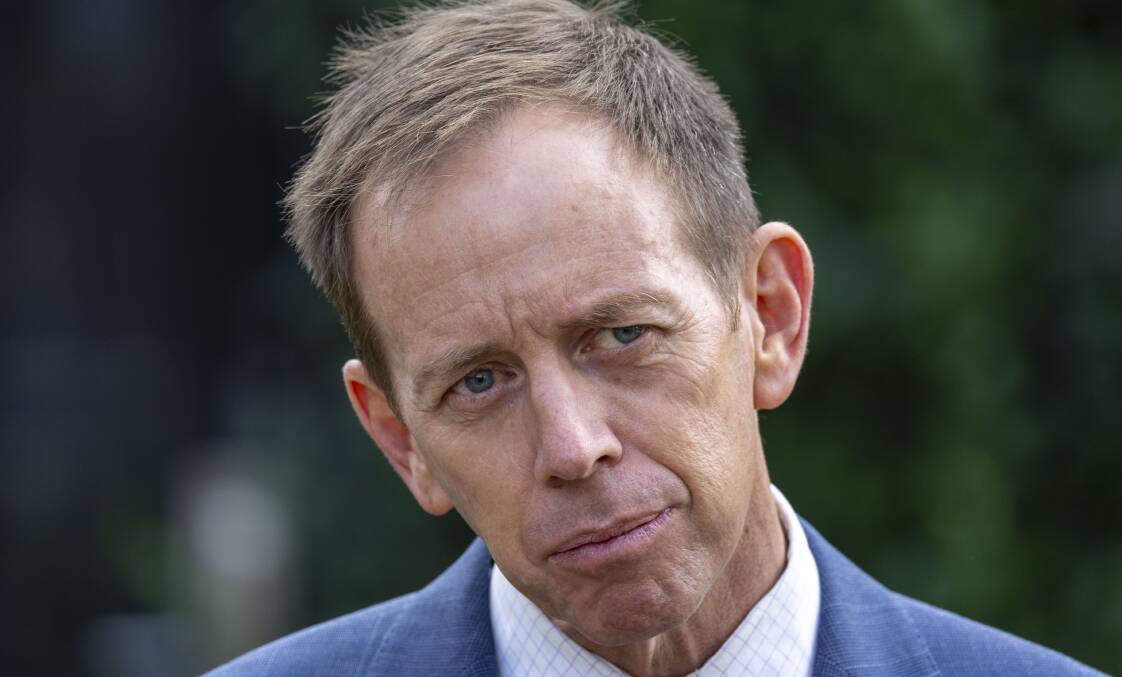Legal experts have largely welcomed changes to allow majority jury trials in the ACT and prison terms for juror misconduct following the botched rape trial of Bruce Lehrmann.
Under the changes, which passed the ACT Legislative Assembly on Wednesday, a jury won't be required to make a unanimous decision and a court may accept a verdict if 11 or 12 jurors agree.
Jurors will also face a two-year prison term if they are found guilty of misconduct.
The changes would make it an offence for jurors to seek information about a trial independently, such as through online searches.
The new offences follow the mistrial in the case of Bruce Lehrmann where the jury was discharged after one of them took a problematic research paper into the jury room.
Attorney-General Shane Rattenbury said the changes were developed in consultation with key justice stakeholders. He said the changes would help prevent retrials.
"In a diverse community people may not always agree, resulting in hung juries," he said.
"This not only causes delays and increased costs but also adds emotional strain for victims, accused people and others involved in the proceedings."
A majority verdict would only be accepted when the jurors have deliberated for six hours and the court is satisfied the jury will not reach a unanimous verdict after further deliberation.
The ACT Law Society has previously raised concerns about the new juror misconduct offence and has reservations over the new jury verdict rules.
"In circumstances where the government had determined there was to be a change, we support that it is limited only to circumstances where 11 out of 12 agree," Chair of the ACT Law Society's criminal law committee Michael Kukulies-Smith said.
"And acknowledge that allowing for majority verdicts in that circumstance may avoid the extremely high costs of re-trials."
The solicitor said those costs were emotional as well as financial.
"Re-trials are traumatic experiences for all involved, from witnesses, complainants, defendants, through to the lawyers," he said.
Mr Kukulies-Smith said the society acknowledged altering a majority by one juror was the most appropriate change that could have been made.
"Because it at least would limit its application to the circumstance where you have the 'rogue' juror," he said.
The legal body believed contempt of court charges could already deal with juror misconduct.
"However, it is perhaps preferable that it be clear to jurors who are serving exactly what their obligations are," Mr Kukulies-Smith said
"To the extent the specific offence defines what they can't do more explicitly, that's not a bad thing."
Acting Director of Public Prosecutions Anthony Williamson SC said he supported making it clear to jurors they have certain obligations and it's an offence not to comply with them.
"It's crystal clear now and that can only be helpful," he said.
New disclosure rules for prosecutors
Mr Rattenbury also introduced an amendment bill to the Legislative Assembly on Wednesday responding to a recommendation into the board of inquiry into the botched trial of Mr Lehrmann.
The bill would introduce changes to cement what the prosecution must disclose during a criminal trial and when the disclosures must occur. It includes a requirement for prosecutors to disclose all evidence available to them.

There would also be a requirement for prosecutors to make ongoing disclosures as information becomes available to them. Disclosures to the defendant must be made at least 28 days before the hearing date, unless the court determines otherwise.
Mr Rattenbury said this responded to a recommendation in the board of inquiry that the government enact legislation "to codify the scope and content of the obligation of disclosure owed by the prosecution in criminal proceedings".
"The obligation on the prosecution to disclose the evidence in its possession to the defence is a long-standing feature of our criminal justice system and it is central to a fair trial," Mr Rattenbury told the Assembly.
"Disclosure enables the accused to understand the charges against them and prepare their defence."
The Attorney-General's bill would also make an amendment to ensure a person can be heard by the court in matters where confidential material, such as health or counselling records, about sexual assault or family violence may be used.
Under current laws complainants in sexual assault or family violence matters don't have the right to appear and be heard by the court when applications are made for confidential material to be introduced as evidence.
"The standing amendments support victim-survivors to have their voices heard. This strengthens the integrity of our justice system," Mr Rattenbury said.







